-
- Find Care
-
- Visitor Information
- Find a Location
- Shuttles
- Visitor Policies
-
-
-
- Our Virtual Care Options
- Virtual Urgent Care
- Virtual Visits for Primary & Specialty Care
- Online Second Opinions
- Participate in Research
-
- Contact us
-
- For Innovators
- Commercialization Guide for Innovators
-
-
- Research News
- Alzheimer's Disease
- Artificial Intelligence
-
- Overview
-
- Overview
- Getting Started
- New to Mass General Brigham
- International Patient Services
- What Is Patient Gateway?
- Planning Your Visit
- Find a Doctor (opens link in new tab)
- Appointments
- Patient Resources
- Health & Wellness
- Flu, COVID-19, & RSV
- Billing & Insurance
- Financial Assistance
- Medicare and MassHealth ACOs
- Participate in Research
- Educational Resources
- Visitor Information
- Find a Location
- Shuttles
- Visitor Policies
- Find Care
-
- Overview
- Our Virtual Care Options
- Virtual Urgent Care
- Virtual Visits for Primary & Specialty Care
- Online Second Opinions
-
- Overview
- Participate in Research
-
- Overview
- About Innovation
- About
- Team
- News
- For Industry
- Venture Capital and Investments
- World Medical Innovation Forum (opens link in new tab)
- Featured Licensing Opportunities
- For Innovators
- Commercialization Guide for Innovators
- Contact us
-
- Overview
- Information for Researchers
- Compliance Office
- Research Cores
- Clinical Trials
- Advisory Services
- Featured Research
- Two Centuries of Breakthroughs
- Advances in Motion (opens link in new tab)
- Brigham on a Mission (opens link in new tab)
- Gene and Cell Therapy Institute
- Research News
- Alzheimer's Disease
- Artificial Intelligence
-
- Overview
-
- Overview
- Residency & fellowship programs
- Brigham and Women's Hospital
- Massachusetts General Hospital
- Mass Eye and Ear
- Newton-Wellesley Hospital
- Salem Hospital
- Integrated Mass General Brigham Programs
- Centers of Expertise
- Global & Community Health
- Health Policy & Management
- Healthcare Quality & Patient Safey
- Medical Education
- For trainees
- Prospective trainees
- Incoming trainees
- Current trainees
- Continuing Professional Development
Mass General Brigham Unveils Newly Designed Community Care Vans
- Community Care Van 1
- Community Care Van 4
- Community Care Van 2
- Community Care Van 3
- Community Care Van 5
This week, Mass General Brigham leadership introduced a new fleet of Community Care Vans at an outdoor celebration of our mobile health initiatives. Mass General Brigham Community Care Vans are designed to make health care more accessible. The vans are part of the larger United Against Racism initiative at Mass General Brigham, which addresses structural racism affecting patients, staff, and the community.
The Community Care Vans were originally deployed in 2021 during the height of the COVID-19 pandemic. They started out as retrofitted shuttle buses — an inventive collaboration with DPV Transportation, a minority owned transportation company based in Everett. The next generation of vans are a physical embodiment of the next iteration of our mobile care work.
There are now three fully staffed Community Care Vans that serve the catchment areas of Massachusetts General Hospital, Brigham and Women’s Hospital and the North Shore. The three new vehicles are custom designed to offer patients a comfortable reception space, storage, a fully equipped exam room, and a telemedicine booth.
“These new vans are a manifestation of our enduring commitment to community health, as a core part of who we are,” Dr. Anne Klibanski, President and Chief Executive Officer of Mass General Brigham, said at the event. “We are committed to caring not only for those patients who come through our doors, but also for the broader community, including those who often are not able to access traditional care — like communities of color who have borne the brunt of generational health inequities.”
The Community Care Vans are staffed with multilingual and multicultural clinicians and support staff to better connect with the communities both in greater Boston and across the Commonwealth. Each van is staffed with a physician lead, operations manager, nurse practitioner, medical assistant and community health worker.
As of May 2023, the Community Care Vans had administered more than 20,000 COVID vaccines to community residents. Now, as COVID-19 transitions from an acute pandemic to a more endemic state, the Community Care Vans have also evolved to meet people where they are.
Mass General Brigham's Community Care Vans offer a broad menu of mobile medical services, including screenings and interventions for chronic health issues like hypertension, diabetes, and substance use disorders. They also offer ongoing risk-mitigation assessments for social determinants of health like food or housing, with connection to services.
“These [conditions] weren't chosen by accident. They are chosen because they specifically contribute to the largest gaps in morbidity and mortality among the communities around Boston and Massachusetts” said Dr. Tom Sequist, Chief Medical Officer for Mass General Brigham. “And they were chosen in partnership with the communities that we are collaborating with.”
The vans partner closely with hundreds of organizations in local communities to help determine where and when they should hold sessions, like the True Alliance Center, La Colaborativa, Senior Subsidized Housing, Fresh Truck, and my Big Brother’s Table.
Pastor “Keke” Dieufort Fleurissaint, President & Executive Director of True Alliance Center, a Mass General Brigham community partner, offered his perspective at the event. He explained that the vans are vital for providing care to those who may have little trust in official systems. This is especially important for immigrant communities, like his Haitian community, where social barriers such as language, fear of deportation, or other immigration issues can be even more pronounced.
“I have seen firsthand, by bringing health care services directly to the community, mobile clinics provide a solution to these challenges and make health care more accessible to those in need,” Fleurissaint said.
Dr. Priya Sarin Gupta, Medical Director for Community-Based Clinical Programs at Mass General Brigham, provided an in-depth overview of the evolution of the vans, their services, and how they are positioned within the broader healthcare ecosystem. The Community Care Vans, she explained, are not a replacement for regular healthcare, but an important tool in a health system’s toolkit. She also noted that, ultimately, it’s about the people.
“As a first generation American, I learned the value of community as I saw my family build their own community here in the United States,” she said. “The vans empower our local communities […] so they can live the lives that they dream for themselves.”
Media contact
About Mass General Brigham
Mass General Brigham is an integrated academic health care system, uniting great minds to solve the hardest problems in medicine for our communities and the world. Mass General Brigham connects a full continuum of care across a system of academic medical centers, community and specialty hospitals, a health insurance plan, physician networks, community health centers, home care, and long-term care services. Mass General Brigham is a nonprofit organization committed to patient care, research, teaching, and service to the community. In addition, Mass General Brigham is one of the nation’s leading biomedical research organizations with several Harvard Medical School teaching hospitals. For more information, please visit massgeneralbrigham.org.
Related news
-
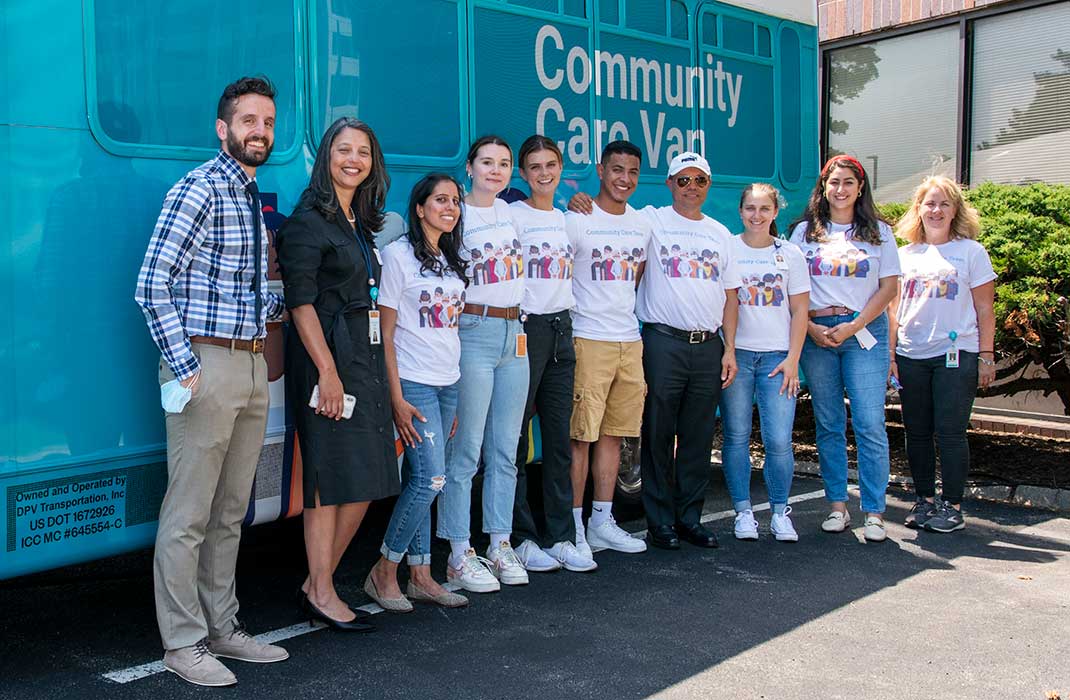
published on
-
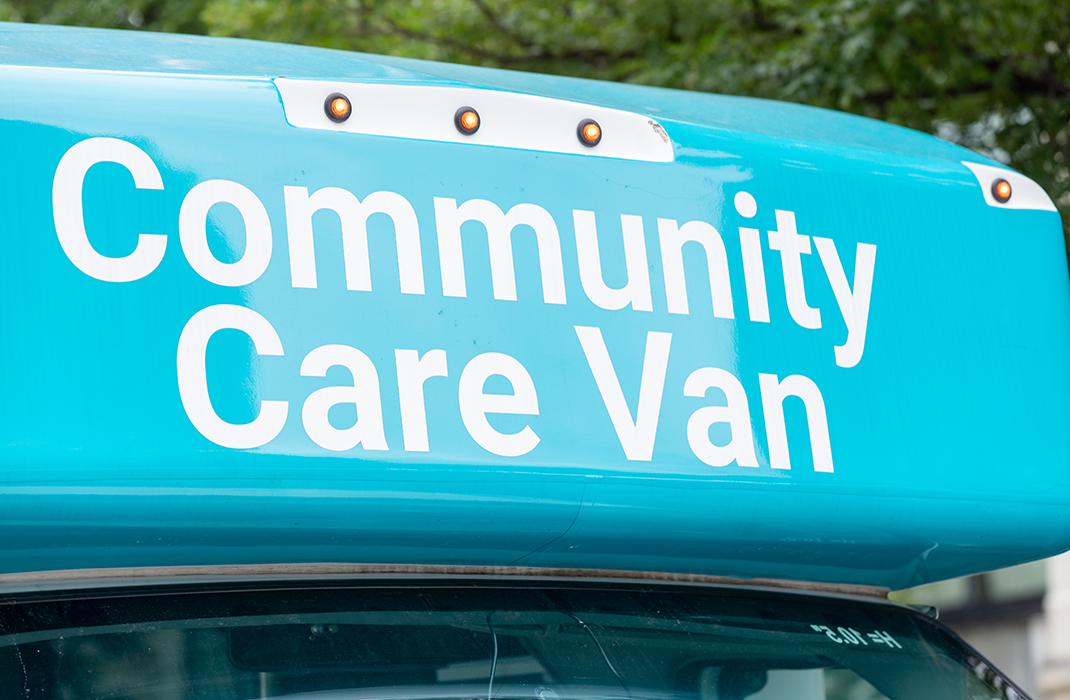
published on
-
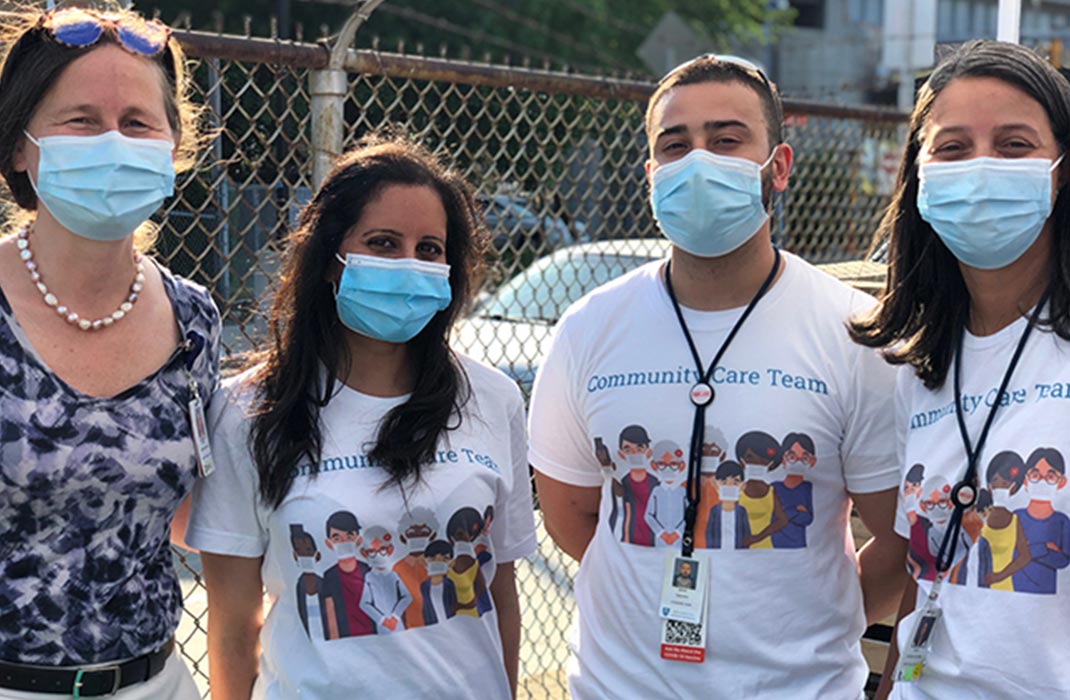
published on
-
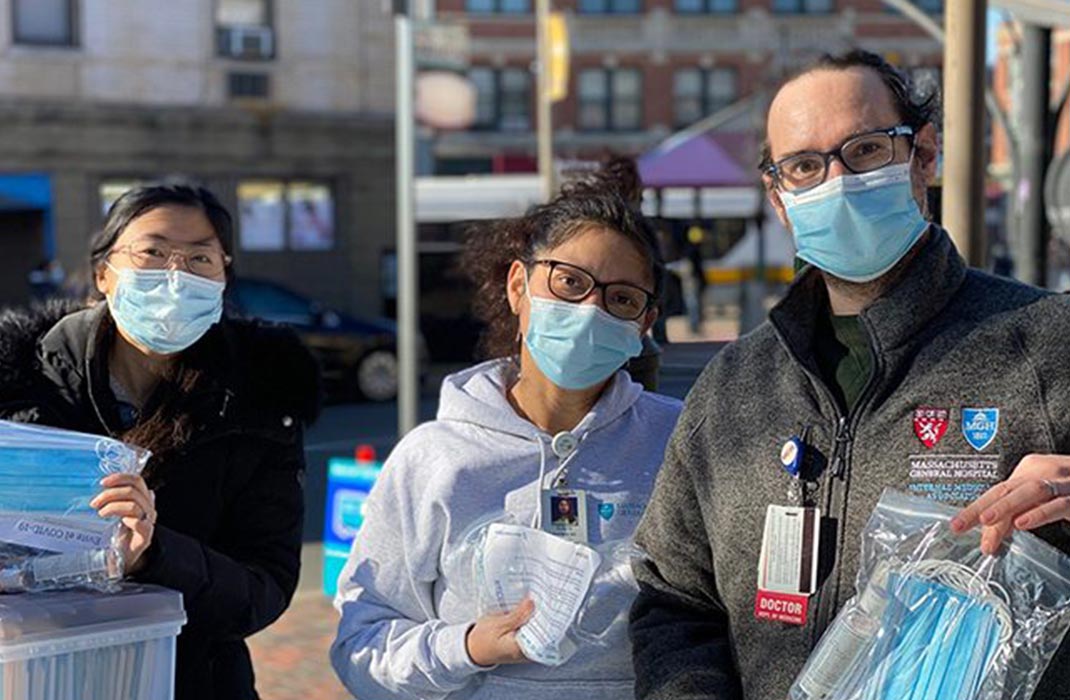
published on
-
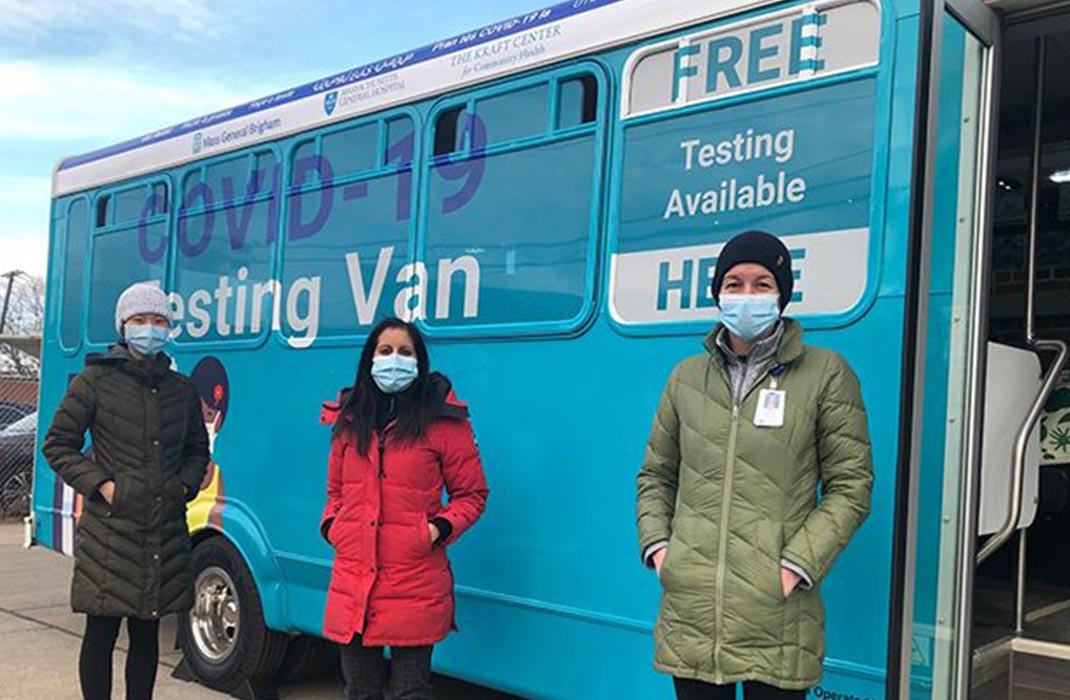
published on




